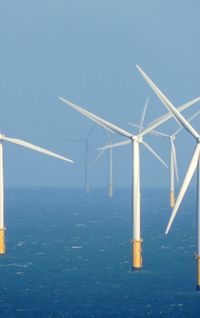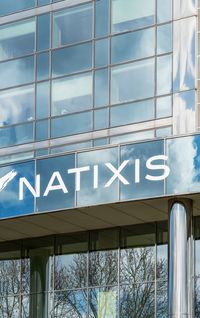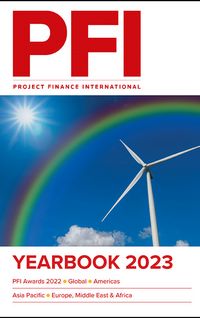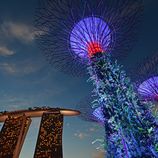Dubai-based Yellow Door Energy has gone from raising seed funding rounds in 2015 to having a global solar pipeline currently worth US$1bn, attracting excited investors and confidently stepping into emerging markets. By Cristiana Sandeva.
Yellow Door Energy got a US$400m equity boost this year from UK investor Actis, which acquired a controlling stake by buying all seed investors’ stakes. HSBC was Actis' sole financial adviser on the acquisition and Clifford Chance was international legal counsel. Yellow Door Energy's sole financial adviser was Cantor Fitzgerald and White & Case was legal adviser. Dentons advised the shareholders. The acquisition was funded through Actis' US$6bn Energy Fund V. Actis recently invested US$500m from the same fund to establish Rezolv Energy, a Prague-based renewables company focused on investments in Central and Eastern Europe.
The Dubai based company’s existing equity investors and majority stakeholders, Saudi multilateral Arab Petroleum Investments Corporation (Apicorp), the World Bank’s IFC and Japan’s Mitsui & Co, increased their equity commitments as part of the Actis deal, consolidating their support for Yellow Door’s commercial and industrial (C&I) pipeline of planned developments over 1GW. The IFC has been with Yellow Door since its early days in 2019 and has invested US$30m in the company through its Middle East and North Africa Fund. Apicorp, the IFC Mitsui and Norway’s Equinor jointly invested €7m in their first joint equity funding round in 2019. They have been investing “a lot more equity” since then, founder and CEO Jeremy Crane told PFI.
Canadian-born and Dubai-resident Crane sees a bright future for the company, which has by now asserted its presence in the Gulf and is ready for pastures new, stepping into emerging markets with high irradiation rates. Crane started the business in 2015 with operations in UAE and Jordan. The company's pipeline now includes 106MW of operational capacity and 104MW of licensed capacity to start construction across the UAE, Jordan, Pakistan, Saudi Arabia, and Bahrain. It is expanding its activities to Turkey and South Africa, taking the number of its registered markets of activity to seven globally in 2023. Yellow Door has strategic engineering procurement and construction (EPC) local partners in every market and the approach is to grow in markets by scaling and growing together with EPC partners.
The entire equity funding raised this year will go into project funding alongside the project debt being raised by Yellow Door. Looking to the immediate future, the developer is actively working on closing a US$150m project financing deal in Q1 2023, potentially even by year-end. The funding would be split into three long-term debt facilities for 172MW of total capacity, divided into three portfolios of 86MW, 48MW and 38MW in Jordan, the UAE and a multi-country development across Gulf states. The financing will most likely be split into three facilities of about US$75m, US$37.5m and US$37.5m, and each tranche will be a bilateral loan between the developer and a different local bank, sources have told PFI.
“We are in discussion with many local and regional banks. Six to 12 months from now we will start looking at more relationship banking initiatives and multilaterals to finance large-scale projects/portfolios,” Crane said.
Financial advisory services are provided in-house for the debt financing. Apicorp could be among the lenders, although Yellow Door declined to comment. The Saudi investor has been a debt financier for Yellow Door since pre-pandemic times. It signed a US$50m revolving construction facility with Yellow Door Energy in 2020. The first use of the financing was for solar PV projects in Jordan, where Yellow Door Energy has built 79MW of solar PV projects across the country. Apicorp is a Yellow Door Energy shareholder. In 2019, Apicorp and a consortium of international and regional banks invested US$65m in Yellow Door Energy to scale-up its investments.
The core expansion goal for next year will be to double the portfolio capacities in Saudi Arabia and to focus on growing a South African portfolio to reach the size of the existing one in the GCC. All the financing that the company is raising right now is for projects that have already been contracted, and some of the debt will be used to refinance operating projects in the Jordan/GCC markets.
It is currently undertaking a portfolio of 20 projects across the Gulf for rooftop solar panels on malls for Saudi conglomerate Majid Al Futtaim. The company inaugurated this year a 17MW solar park in east Amman, Jordan, which will wheel energy to 35 Carrefour stores owned by Majid Al Futtaim across the country. The Bahrain Mall owned by the Saudi company via Carrefour Bahrain recently signed a PPA to get half of its power needs from a 6.2MW rooftop solar plant through a direct PPA with Yellow Door. French aluminium producer Imerys and Bahraini peer Al Zayani signed PPAs this year for a 4.7MW solar project to be connected to Imerys’ internal distribution network in Bahrain.
Yellow Door has been aiming to operate on zero-grid scale since its inception and has never competed in the public procurement space as an independent power producer (IPP), nor does it plan to enter the IPP space in the future. Majid Al Futtaim has been a long-term offtaker for Yellow Door in the GCC, alongside global players Carrefour, DHL, Nestle, Unilever, Mondelez and local private infrastructure operators. This year, Mondelez signed a PPA for 2.3MW rooftop and carport solar power for its Bahrain biscuit production unit. Hinopak Motors entered a PPA for a 1.6MW solar plant powering its assembly and production plants in Karachi, Pakistan. Yellow Door commissioned a 1.4MW facility for Nestle Pure Life’s production facility in Dubai, with the global drinking water supplier now powering 80% of its factory operations with renewable energy.
In terms of emerging markets, the offtaker targets in South Africa are mid to large-scale industrials and retailers rather than gigawatt-consuming mines and the approach will be similar to the one consolidated in Jordan. Battery energy storage systems will be a part of every project proposal, with an aim to match the megawatt capacity of solar plants with the same battery storage capacity. The South African business will be expanded from solar to also include “hybrid plants with energy storage, green heating and cooling solutions, waste heat recovery, gas to power solutions and energy efficiency programmes”, said Yellow Door’s local country director Mohamed Madhi.
The reason for choosing South Africa and Turkey as new markets of activity is in the deregulation being implemented by local governments on offtake agreements.
“Both Turkey and South Africa are exciting right now because they are starting to get deregulated. This means private developers such as Yellow Door Energy can enter and provide energy solutions to help businesses become more energy-independent, without having to constantly rely on local utility providers,” Crane told PFI.
Despite the significant presence of a public procurement market regulated in local currency in both countries – with Turkey’s YEKA programmes and South Africa’s REIPPPs – both countries are displaying growing interest in private initiatives as a way to counter the challenges associated with local currency volatility, Crane observed.
Power purchase agreements in the new markets will be wheeling. Yellow Door has wheeling power purchase agreements in place for its projects in Jordan and it is eager to replicate the model in South Africa, since wheeling corporate PPAs were recently introduced in the country. A wheeling agreement is an offset transaction where the national transmission system operator meters the developer’s generation and the offtaker’s usage and sets off the kWhs generated by the developer against the offtaker’s utility invoice. Yellow Door’s first ever project to be commissioned was in Jordan in 2018, consisting of a 4MW solar plant wheeling energy to the Specialty Hospital in Wadi Al Aash. Telecommunications operator Umniah wheels 17.6MW of solar energy from Yellow Door’s plants in Jordan to power 50% of its energy needs through four solar parks located in Azraq, Mafraq, Halabat and Dulail.
In the Gulf and Middle East, the company has started to look at acquisitions to be added to its greenfield pipeline. The unofficial plan for 2023 is to get the portfolio of acquired projects and projects developed in partnerships with other developers to about 20% of the total capacity under development. The company is understood to be in talks with peers for joint venture agreements and cooperation partnerships.
An additional facility of US$200m is being planned for the next 12 to 18 months. The latter would be structured as a multi-geography facility funded from the cashflows of the companies in Yellow Door’s markets of operation, a source told PFI. The strategy of the company is to close financing now in anticipation of refinancing in the near future when rates come back down. “It is important for us to have strong relationships with banks, so that we can maximise and optimise our borrowing on sustainable infrastructure projects,” Crane said.
To see the digital version of this report, please click here
To purchase printed copies or a PDF of this report, please email leonie.welss@lseg.com

















